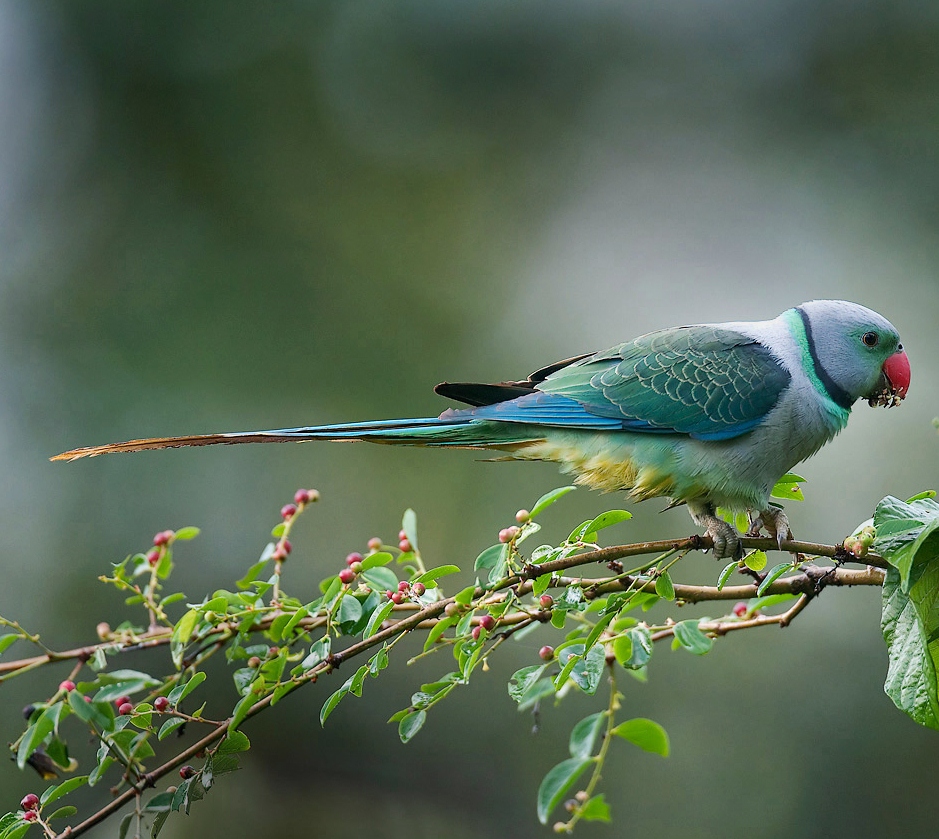 |
| Photo by Bishan Monnappa (India Nature Watch) |
Common name:
Malabar parakeet (en); piriquito-de-colar-de-Malabar (pt); perruche de Malabar (fr); cotorra de Malabar (es); taubensittich (de)
Taxonomy:
Order Pasittaciformes
Family Psittacidae
Range:
This species is endemic to the Western Ghats of southern India.
Size:
The Malabar parakeet is 36-38 cm long and weighs around 90 g.
Habitat:
These birds are found in upland evergreen rainforests, moist scrublands, deciduous forests with bamboo, arable land and abandoned coffee and rubber plantations, from sea level up to an altitude of 1.600 m.
Diet:
They feed on seeds, fruits, particularly wild figs, buds, flowers and nectar. They may also take sorghum and fruit crops.
Breeding:
Malabar parakeets breed in December-March. They nest in tree holes, especially old woodpecker and barbet nests, often in Ceylon ironwoods Mesua ferrea. The female lays 4 eggs, which are incubated for 21-23 days. The chicks are fed by both parents and fledge 28-32 days after hatching.
Conservation:
IUCN status – LC (Least Concern)
This species has a somewhat restricted breeding range, but is reported to be common throughout the core of its range. Although the Malabar parakeet is affected by hunting for the pet trade and by habitat loss, the population is suspected to be stable in the absence of evidence for any declines or substantial threats.







